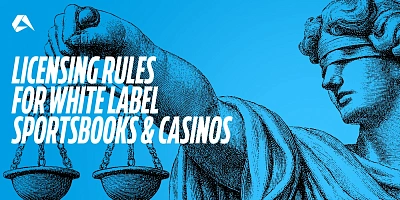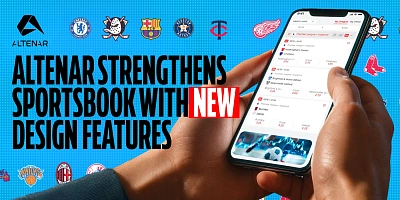As the phones in our pockets and our TV’s grow ever smarter it’s often a topic of discussion, or wild conspiracy in the darkest depths of the internet, that questions rise around where all of this information goes, what it’s used for and generally is this data being stored for some malicious purpose.
With voice recognition, home assistance technology, face recognition, all the way down to live image filters and a simple internet search for your preferred type of bread, people believe that this information is stored, recorded, and saved for potential future use. Though, are these worries a staple of a fictitious sub-reddit thread where the minds of the curious spin a web of oddity, or has conspiracy turned fact and the twisted plots of Black Mirror have come to pass like some tomb-encased prophecy?
The team at Altenar, a sportsbook software provider, have deliberated this question around these tech-based conspiracies, and have created a host of interesting and fun responses to the potential for their favourite movie quotes to be recorded and stored in a supercomputer to the utter rejection of such a notion.
The first question posed to the Altenar team asked the minds behind the sports betting software provider their thoughts on the following, ‘Do you believe that social media platforms and search engines are gathering information about you via your searches, likes and dislikes?’ And in a world where the line between fact and fiction is often blurred, obscured or entirely coded within the Matrix, Altenar’s employees had this to say…
Traversing The Line Between Fact, Fiction And Conspiracy
The prevailing answer was that this conspiracy had already become a prophecy-actualised, with the likes of social media and search engines using our searches to create personalised ads, content and more.
Darren Willenberg responded without hesitation, saying, ‘they definitely are gathering information’!
Another employee, barely contained by their wit, noted ‘Ha-ha. Is it possible not to believe in the truth?’, not that many could rally an argument against the comment, after one search for a chocolate shop will create a snowball effect,wherein, your phone is bombarded with niche chocolate shops fr om countries you don’t live in or have access to.
The array of responses continued and it slowly became certain that there was no question of fact, fiction or conspiracy wh ere this notable-question was concerned, a valued staff member commented, ‘It's not a matter of belief - i know it’ with an almost satirical smiling face punctuating the statement.
Sokratis Kontopoulos added, ‘I think that yes, platforms can ( I also am a developer and in my mind this is feasible ) and do gather info about our preferences and nowadays this is more-confirmed, since a lot of ads are being displayed based on our searches/actions including those in our social media.’
With a resounding ‘they definitely are’ the team behind the sportsbook software provider, Altenar, tackled the second question posed to them ‘Hypothetically, what do you think they will be able to do with this information?’ That question raised a host of interesting responses that demonstrated the mix of people who thought conspiracy had turned to fact, had remained a fiction or simply didn’t want to think of what our data, personal information and search history could be used for.
George Drivakos commented, 'It (our information) will be taken advantage of because it’s valuable info for strengthening their status, either fr om selling it to using it as leverage.'
‘I would rather not think about that,’ one employee noted about the potential for companies to store our data, search history and everything in between, even if the idea of malicious use is still widely a conspiracy.
Esteban Moscote added that companies are likely ‘Uploading our profile to databases and analysing it in order to sell that information to third parties or use this themselves in creating better directed-adverts so we buy more products inside their platforms.’
Another employee explained in ironic detail, faux-greeting social media companies, ‘everything you do or search is stored somewhere, because this is money (Hello social media)’ where the idea of paid-for content, ads and direct advertising grows in popularity through analytics and cookies.
One professional behind Altenar’s sportsbook software, proposed 3 points based on a business aspect, a platform-work aspect and a human aspect as to why our searches, likes and dislikes are inherently valuable.
1. They may pass such info to their partners to make more precise targeted-advertising.
2. Platforms themselves can process my actions and show me some relevant content based on my searches and likes.
3. It could be possible to create a psychological portrait of any person from their internet history, searches, likes etc…
The employeel closed with a pre-posed question: ‘Who would be interested in this data?’ and that’s one for you to mull over; is the line between fact and fiction so thin that conspiracy isn’t a matter of if but when in the tech-conspiracy world?
Altenar’s professionals often deliberate fun tech topics, tech conspiracies and tech theory, as a means of creating stronger bonds together, a chance to voice opinions and generally a chance to interact with interesting topics like the one above.
You can find more articles like this on Altenar’s website, along with some hard-hitting facts about the sports betting market, case studies, demos and professional insights that are as far from fiction as fact can be.
Speak with one of Altenar’s professionals today to learn more about sportsbook software and what it can do for you and your business.













